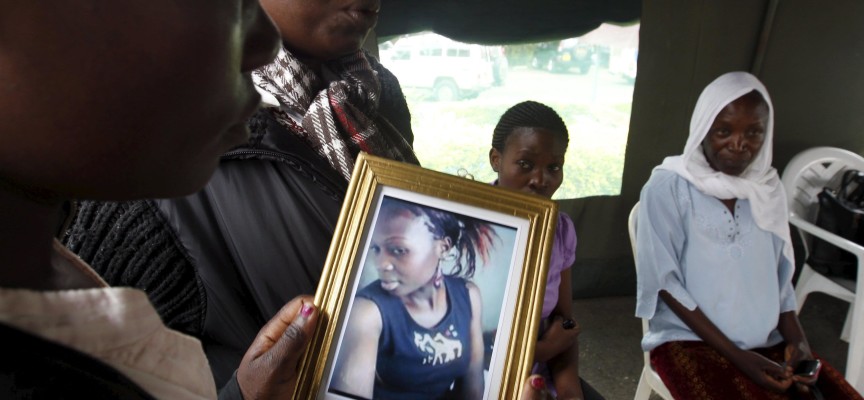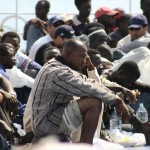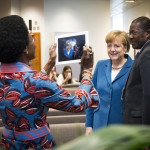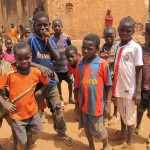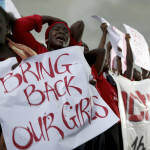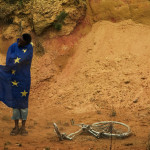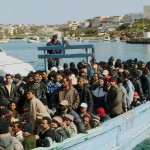The dead of Garissa are our dead. Those of Garissa are dead of ours. We should keep on saying it aloud two weeks after the massacre that claimed the lives of 147 students in Northern Kenya, in the big university campus where they studied.
Not only because we should consider every dead and, in particular, every victim of terrorism, as our own dead, regardless if they died in Paris or Baga, in Mosul or Tunis, but for the very fact that these young people have been killed by Al-Shabaab Somali warriors as an act of retaliation against the militia engaged in the difficult task of stabilizing Somalia. A slow process, full of uncertainties, although it showed positive signs in recent years also thanks to the contribution of Europe.
On September 16, 2013, a major international conference was held in Brussels which launched a “New Deal” for the reconstruction of Somalia.
A few weeks ago the Council of the European Union has extended until December 31, 2016, the mandate of the EUTM mission, the European mission (which includes Italian soldiers) engaged in training the Somali army.
Not to forget about the EU NAV FOR, the European sea operation engaged in patrolling the coast of Somalia and the Gulf of Aden as an anti-piracy action.
But, it must be said clearly, the highest price in the fight against Al-Shabaab is being paid by the African States that, for years, have been fighting under the mandate of AMISOM, the African Union Mission in Somalia which has been active since 2007. It involves around 21,000 soldiers and 500 police agents from Uganda, Burundi, Djibouti, Kenya, and Ethiopia. The soldiers of Sierra Leone left the mission a few months ago, while police officers from Nigeria and Ghana have signed in.
Not to mention the price paid by civilians and the administration staff: about ten days ago, during a terrorist attack in Mogadishu, Yusuf Mohamed Ismail alias “Bari Bari”, the representative of the Somali government to the United Nations in Geneva, was killed.
Thus, the Africans themselves are playing the heaviestrole in the fight against the Al-Shabaab terrorist group. A battle that, as it is the case with ISIS or Boko Haram, must also be ours. Because we cannot rely on the participation of the “others” to the fight against international terrorism and then look the other way when innocent blood is poured. Investing money and resources is important, but it is not enough.
The ties between Somalia and Europe (Italy in particular) are longstanding. We cannot pretend that colonialism did not exist, that there were no links with the Siad Barre regime and that not exactly transparent (this a clear understatement) forms of trade have taken place in this strip of land. How could we forget about those people, such as Ilaria Alpi, along with her cameraman Miran Hrovatin, were killed for refusing to look the other way.
This is why we should care about those young people who died and even more about those who survived and ask only to be able to study and live without fear.
Quelli di Garissa sono i nostri morti. Quelli di Garissa sono morti nostri. Dovremmo continuare a ripetercelo a due settimane dalla strage che è costata la vita a 147 studenti nel nord del Kenya, all’interno del grande campus universitario dove studiavano.
Non solo perché dovremmo sentire ogni morto e, in particolare ogni vittima del terrorismo, come nostro, indipendentemente se si trovi a Parigi o a Baga, a Mosul o a Tunisi, ma perché quei giovani sono stati colpiti dai miliziani somali di Al-Shabaab come ritorsione nei confronti delle forze impegnate nel difficile compito di stabilizzare la Somalia. Un processo lento, pieno d’incognite, ma che ha fatto registrare segnali positivi negli ultimi anni anche grazie al contributo dell’Europa.
Il 16 settembre 2013 a Bruxelles si era tenuta una grande conferenza internazionale in cui era stato lanciato un “New Deal” per la rinascita della Somalia.
Poche settimane fa il Consiglio dell’Unione europea ha prorogato fino al 31 dicembre 2016 il mandato della missione Eutm, la missione europea (dove sono presenti anche soldati italiani) impegnata nell’addestramento dell’esercito somalo.
E poi c’è l’Eu Nav For, l’operazione marittima europea impegnata nel pattugliamento delle coste somale e del Golfo di Aden in funzione anti-pirateria.
Ma, bisogna dirlo chiaramente, il prezzo più alto nella lotta ad Al-Shabaab lo stanno pagando gli stessi Stati africani che, da anni, combattono sotto il mandato di Amisom, la missione dell’Unione africana attiva in Somalia dal 2007. Sono operativi circa 21 mila soldati e 500 poliziotti provenienti da Uganda, Burundi, Gibuti, Kenya ed Etiopia. I soldati della Sierra Leone hanno lasciato la missione nei mesi scorsi mentre sono presenti poliziotti da Nigeria e Ghana.
Senza contare il costo pagato dai civili e da quanti sono impegnati nell’amministrazione: circa dieci giorni fa è stato ucciso in un attentato a Mogadiscio, Yusuf Mohamed Ismail “Bari Bari”, rappresentante del governo somalo all’Ufficio delle Nazioni Unite a Ginevra.
Sono dunque gli stessi africani a giocare la parte più pesante nella lotta al gruppo terrorista di Al-Shabaab. Una battaglia che, così come avviene per Isis o Boko Haram, deve essere anche nostra. Perché non possiamo invocare la partecipazione degli “altri” alla lotta al terrorismo internazionale per poi voltarci dall’altra parte di fronte al sangue innocente. Impegnare soldi e risorse è importante, ma non basta.
I legami tra la Somalia e l’Europa (Italia in primis) sono antichi. Non possiamo far finta che il colonialismo non ci sia stato, che non vi siano stati legami con il regime di Siad Barre e che traffici non proprio trasparenti (è un chiaro eufemismo) siano avvenuti in quel lembo di terra. Come dimenticare chi come Ilaria Alpi è stato ucciso, insieme al suo operatore Miran Hrovatin, per non aver voluto guardare dall’altra parte.
Ecco perché ci deve importare di quei giovani morti e ancora di più di quanti sono sopravvissuti e chiedono solo di poter studiare e vivere, senza paura.
Michele Luppi
www.africaeuropa.it
Latest posts by Michele Luppi (see all)
- How can Europe do that? - 16 aprile 2016
- A raw nerve in european consciousness - 23 luglio 2015
- The cry of the dead of Garissa - 18 aprile 2015

